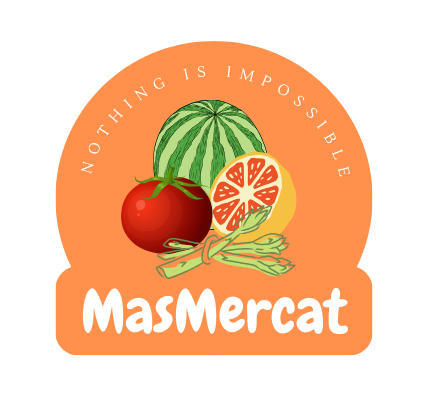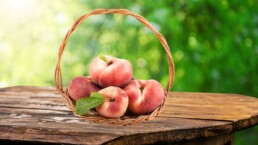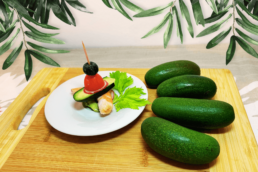PHYTOCHEMICALS: WHAT THEY ARE AND HOW THEY BENEFIT US
We often hear sayings such as “we are what we eat” or “prevention is better than cure.” This highlights the importance of not only knowing what we eat, but also understanding the effect it has on our bodies, as is the case with phytochemicals. For this reason, on this occasion we will talk briefly about them: what they are and how to consume them to take advantage of their potential.
WHAT ARE THEY?
The word phytochemical comes from the word “phyto,” meaning plant. Phytochemicals are natural chemical compounds produced by plants as part of their defense mechanisms, growth, and pigmentation. There are more than 4,000 phytochemicals, but only about 150 have been studied in depth. Some are known as phytotoxins, which are toxic for consumption; others are antinutrients, which interfere with nutrient absorption; and others are pro-oxidants, which are the focus of this article.
Phytochemicals are important because they provide health benefits when consumed through plant-based foods.
WHERE ARE THEY FOUND?
Their main characteristic is that they can be found in fruits, vegetables, legumes, cereals, and herbs. Among their main properties are antioxidant, anti-inflammatory, and protective effects. They also contribute to the prevention of cardiovascular diseases, certain types of cancer, and metabolic disorders.
The most common phytochemicals include flavonoids, which can be found in citrus fruits, tea, and cocoa. Isoflavones, a type of flavonoid known as phytoestrogens, are found in large amounts in tofu, miso, and tempeh.
Other common phytochemicals include carotenoids, found in carrots and tomatoes, polyphenols, present in grapes, red wine, and olive oil, and glucosinolates, found in broccoli and cabbage. All of these phytochemicals are natural plant substances that help improve health and protect the body.
THE BEST WAY TO PRESERVE THEIR PROPERTIES
It is important to consider that, depending on how foods containing phytochemicals are prepared, their properties may be preserved or lost. Factors that can easily destroy or reduce them include prolonged cooking times, high temperatures, and excessive water. Another way many phytochemicals are lost is through boiling, as they are water-soluble and leach into the cooking water. Frying foods can also degrade them due to high temperatures.
So how can we consume them to preserve their properties and achieve a greater effect in our bodies? Recommended methods include steaming, quick sautéing, microwaving with little time and water, and baking at moderate temperatures.
It should also be noted that some phytochemicals are maintained or even increase their bioavailability when cooked, such as lycopene (tomatoes) and carotenoids (carrots, squash), whose absorption improves with heat and fat. In the case of sulfur compounds in garlic and onions, they are preserved as long as they are not overheated.
EWhen foods are refrigerated, cold temperatures help preserve most phytochemicals. In the case of freezing, if it is done quickly (as in industrial freezing), most phytochemicals are preserved, although some loss may occur during the blanching process prior to freezing.
Therefore, to make the most of them, practical recommendations include combining raw and cooked foods, using little water and short cooking times, and taking advantage of cooking water (soups and broths). Adding healthy fats such as olive oil improves the absorption of phytochemicals.
Often, just a little willpower and information are enough to change habits that will be reflected in our lives, starting small, step by step, toward great transformations. As the saying goes: “Small habits, big changes.” Adding phytochemicals to our lives will have an internal protective effect on our bodies and will strengthen certain cellular functions. Not only will we make our diet more varied and appealing, but we will also take care of our body and mind.
For more information, click here.
The Flat Peach and Flat Nectarine: Sweetness that Refreshes
During the hot summer months, few fruits are as refreshing and appetizing as the flat peach, also known as doughnut peach, paraguaya or its variant flat nectarine. This fruit, with its flattened shape and intensely sweet flavor, has won over taste buds around the world—especially in Spain, where its consumption grows year after year. But where does this peculiar fruit come from? What health benefits does it offer? And how should we consume it to make the most of its qualities?
Origin of the Flat Peach
The flat peach is a variety of peach (Prunus persica var. platycarpa), and its flat shape is the result of a natural mutation. Its origin dates back to China, where primitive versions were already being cultivated more than 2,000 years ago, as documented in ancient texts describing China’s long agricultural tradition. From there, it spread to Persia, the Mediterranean, and Europe, eventually reaching the Americas.
Its flattened form is believed to have arisen spontaneously as a mutation of the common peach tree, later selected for its intense flavor, thin skin, and juicy flesh
Different Names Around the World
This fruit is known by different names depending on the country or region:
Spain: paraguayo or platerina (the latter usually refers to the smooth-skinned variety, similar to a nectarine).
Latin America: durazno chato, durazno paraguayo, or melocotón plano.
English: doughnut peach, Saturn peach.
France: pêche plate.
Italy: pesca piatta or saturnina.
This variety has become popular in many countries for being sweeter and less acidic than traditional peaches, and for being easier to eat since the pit separates easily from the flesh.
Consumption in Spain and Worldwide
Spain is one of the leading producers and exporters of flat peaches in Europe, particularly in regions such as Murcia, Aragón, and Catalonia. The season runs from June to September, making it a star fruit of the summer. Spanish consumers value it for its sweetness, aroma, and pleasant texture.
Beyond Spain, the flat peach has also gained a presence, especially in gourmet markets and healthy eating circles. Countries such as the United States, Italy, and France have incorporated this fruit into their fresh produce markets as well as into products like juices, jams, and desserts.
Nutritional Properties
The flat peach is a highly nutritious fruit, low in calories and rich in water—making it ideal for hydration and weight-control diets. Below is an approximate nutritional breakdown per100 grams:
Nutrient | Approx. Amount |
Calories | 39 kcal |
Water | 87% |
Carbohydrates | 9.5 g |
Natural sugars |
|
Fiber | 1.5 g |
Protein | 0.9 g |
Fat | 0.3 g |
Vitamin C | 10 mg (17% VD) |
Vitamin A (beta-carotene) | 326 IU |
Potassium | 190 mg |
Magnesium | 9 mg |
Health Benefits
Eating flat peaches offers a range of benefits that go beyond their refreshing taste: they provide natural hydration, deliver antioxidants that help combat oxidative damage, supply fiber that supports healthy digestion, improve cardiovascular function thanks to their potassium content, and are also ideal for a healthy diet as they are low in calories.
What’s the Difference Between the Flat Peach and the Flat Nectarine?
The difference lies not in the species, but in the skin texture and subtle variations in taste and appearance.
Both belong to the same species (Prunus persica var. platycarpa ), a flat variety of peach.
Characteristic | Flat Peach | Flat Nectarine |
Skin | Velvety (with fuzz) | Smooth (no fuzz) |
Flavor | Sweet, juicy, aromatic | Sweet, firm, slightly crisper |
Appearance | Mixed, less uniform colors | Brighter, more uniform colors |
Origin | Flat peach variety | Flat, fuzz-free variety, similar to nectarine |
How to Enjoy it
The flat peach can be enjoyed in many ways: The traditional one is to eat the fruit well-washed and in season, or to add it to a good salad to bring a sweet touch. At breakfast or as a dessert, it pairs wonderfully with yogurt or curd. Another very healthy option is to grill it, which enhances its sweetness and makes it an ideal side dish.
Finally, you can make the most of its sweetness by blending it with plant-based milk or yogurt and ice, without added sugar, resulting in a refreshing, nutritious drink with balanced sugar content—perfect for beating the summer heat. And if you want even more nutrients, you can add seeds such as chia or flax. In smoothies, blended with plant-based milk or yogurt, ice, and no added sugar for a refreshing, nutrient-rich summer drink. For an extra nutritional boost, add seeds like chia or flax.
This summer, you can enjoy the refreshing taste of the flat peach a healthy, versatile, and delicious fruit that continues to earn its place in the Mediterranean diet and beyond.
So if you haven’t tried it yet, summer is the perfect time to savor this juicy, delightful gift of nature.
For more information, explore our products here.
Apricot: The King of Summer
The apricot is not just a symbol of summer—it's a fruit from the Far East, a great ally for health, and a delight in the kitchen.
Its Origin
The apricot belongs to the Rosaceae family and its scientific name is:
Prunus armeniaca
Interestingly, the scientific name refers to Armenia, one of the countries through which the fruit spread to Europe, although its origin traces back to Central Asia and China.
A Bit of History: The Apricot in Spain
It is believed that the Arabs introduced apricot cultivation to the Iberian Peninsula during the Middle Ages. In Arabic, it was known as al-barqūq, a word from which the current Spanish name albaricoque is derived.
A very Spanish curiosity: in Murcia, the main producing region, the apricot is so ingrained in the local culture that there are popular sayings like:
"You’re more Murcian than an apricot"
And rightly so, since Murcia leads national apricot production, with traditional varieties like Bulida, highly prized for their sweet and juicy flavor.
Each region harvests a fruit that reflects the characteristics of its soil, climate, variety, and the care given by the farmer—making each apricot uniquely distinctive. Here’s an example:
Nutritional Content of Apricots (per approx. 100g)
_______________________________________________________________
Nutrient Approx. Amount
Energy 48 kcal
Water 86%
Protein 1 g
Carbohydrates 11 g
Natural Sugars 9 g
Fiber 2 g
Fats 0.4 g
Vitamin A 96 mcg (12% RDI)
Vitamin C 10 mg (12% RDI)
Potasiumm 259 mg
Beta-carotene 1094 mcg
________________________________________________________________
✅ Low in calories, ideal for snacking
✅ Rich in vitamin A and beta-carotene, protects skin and eyesight
✅ Source of vitamin C, boosts the immune system
✅ Contains potassium, supports heart and muscles
✅ Provides fiber, beneficial for digestion
Apricots and Sun Protection
Thanks to their beta-carotene and antioxidant content, apricots help protect the skin from sun damage and promote a healthy tan… though they should never replace sunscreen!
Season and Growing Regions
In Spain:
• Season: April to July
• Main regions: Murcia, Valencia, Alicante, Aragón
Worldwide:
• Turkey – world leader
• Iran, Uzbekistan – historic major producers
• Italy, France – known for high quality
•Morocco and Tunisia – key in the Mediterranean
Quick Regional Summary
| Region | Notable Varieties | Climate | Main Season |
|---|---|---|---|
| Murcia | Bulida, Currot, Mitger, Redixia | Dry Mediterranean, hot summers | April - June |
| Comunidad Valenciana | Canino, Ginesta, Currot | Mild Mediterrean, sea breeze | May - July |
| Aragon | Moniquí, Mitger, Bulida, Faralia | Mild Continental, warm summers | Late May - July |
Each area brings its own signature to the apricot: from the sweetness and size of those from Murcia, to the balance and juiciness of those from Valencia, and the intense, traditional flavor of those from Aragón.
Choose your favorite and enjoy summer naturally! ☀️🍑
How to Eat and Enjoy Them
✔️ Fresh, as a snack or in salads
✔️ Dried, perfect for snacking or baking
✔️ In jams and compotes
✔️ In savory dishes like tagines and stews
✔️ In tarts, yogurts, smoothies, or desserts
A bite of apricot is history, health, and flavor. Take advantage of the season to enjoy its benefits and sweetness—and remember:
If you want to care for yourself from the inside out and show off radiant skin, the apricot is your ally.
For more information, explore our products here
Discover the Date or Cocktail Avocado
The date or cocktail avocado, a gift of nature and a delight for avocado lovers. Seedless and boasting an unparalleled creamy texture, this exotic fruit will transport you to a world of subtle and delicate flavors. Perfect for creating gourmet dishes and unforgettable culinary experiences.
What makes the date avocado unique is that it is the immature fruit of a common avocado variety, such as Fuerte or Bacon. Due to a natural or induced process, the fruit's embryo fails to develop, resulting in a seedless, smaller avocado.
The date avocado is a variety originally from Israel It is smaller than conventional avocados and has an elongated shape, similar to a finger or a small cucumber. Its skin is thin, edible, and dark green, while its flesh is light green and very creamy. To enjoy it, it must be soft to the touch. To enjoy it, it must be soft to the touch.
Where is it grown?
In regions like Andalusia (Málaga, Granada), the cultivation of date Date avocados are grown in Israel and other Mediterranean countries, including Spain. avocados has significantly increased in recent years and is gradually expanding to areas like Valencia. The warm and sunny climate of these regions supports its growth.
The fruit is hand-harvested and carefully selected to ensure quality. It is highly versatile and can be used in a variety of dishes, whether eaten on its own, in salads, sandwiches, guacamole, or smoothies.
What are its nutritional benefits?
Like other avocados, the date or cocktail avocado is an excellent source of healthy fats, fiber, and vitamins such as vitamin E, potassium, and folic acid—essential nutrients for good health.
It is a fantastic choice for those seeking a healthy and delicious fruit.
"Let food be your medicine, and medicine be your food." – Hippocrates
Considered an exotic fruit with limited production, it is classified as a gourmet product.
You can find various recipes on our social media channels. And for more information about the date avocado, feel free to contact us here.




